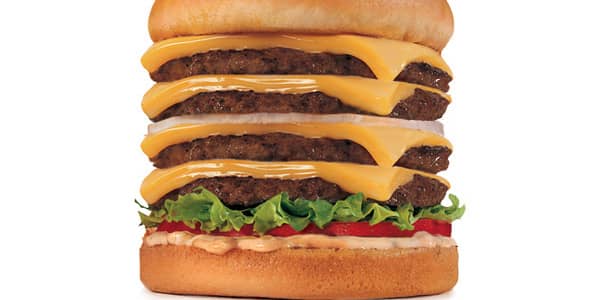No doubt beverage companies are going to be thirsty for new growth.
Consumers are continuing to snub carbonated soft drinks, leading to an acceleration in volume declines seen in recent years. But the weakened economy is making matters even worse for the industry, leading to slower growth for soft drinks as a whole.
For the first time since they began keeping records more than 20 years ago, consulting firm Beverage Marketing is showing that sales of soft drinks as a whole fell by 2 percent last year. The group tracks a wide array of drinks ranging from carbonated soft drinks to juices to energy drinks and water.
"For years, people have said that the beverage marketplace is essentially recession-proof, and that's now been amended to it being somewhat recession-resistant compared with other industries," said Gary Hemphill, of Beverage Marketing.
Carbonated soft drinks account for close to half of all soft drink beverage volume. In recent years, sales of energy drinks, bottled waters and ready-to-drink coffee have been on the rise and have helped offset the declines of colas and other fizzy drinks, but last year, bottled water struggled as perhaps more and more consumers began reaching for the tap in order to save money.
More From Blogs:
A separate report from industry trade publication Beverage Digest, also out today, shows that volume in the carbonated soft drink market fell 3 percent in 2008. That compares with a 2.3 percent decline in 2007, a 0.6 percent decline in 2006, and a 0.2 percent decline in 2005. Taken together the past four years have eliminated years of growth from 1997 to 2004. In 2008, total carbonated soft drink volume in the industry was 9.6 billion cases, a level not seen since 1997, Beverage Digest said.
Per capita consumption of fizzy drinks in the United States fell to about 760 eight-ounce servings in 2008, a level not seen since 1992, according to Beverage Digest. (By comparison, Americans chugged about 849 servings per person in 2000.)
Among the top 10 carbonated soft drink brands, only Diet Mountain Dew and Diet Dr Pepper showed any volume growth in 2008, Beverage Digest said. Diet Dew volume rose 4 percent, while Diet Dr Pepper volume rose 2.3 percent.
Diet Dr Pepper sales no doubt helped Dr Pepper Snapplegain market share, although the company overall lost carbonated soft drink sales volume. Both Coca-Cola and PepsiCo also lost volume, according to the trade publication.
While the strength of Diet Dew and Diet Dr Pepper speaks to a trend toward diet soft drinks that has occurred in recent years, it is notable that the two big diet colas, Diet Coke and Diet Pepsi, both lost volume. Perhaps some of this volume shifted to other low-calorie products from the two cola giants as sales volume of Coke Zero rose 36 percent last year, while Pepsi Max volume jumped 25 percent, according to Beverage Digest.
Both data trackers showed that the strongest beverage volume growth on a percentage basis continues to come from energy drinks. But it should be noted that this growth is off of a significantly lower base.
According to Beverage Marketing, beverage companies sold 365.9 million gallons of energy drinks in 2008, up 9 percent from 335.7 million gallons in 2007. Carbonated soft drink volume, by comparison, was 14.23 billion gallons in 2008, down 3.1 percent, according to Beverage Marketing.
"The biggest challenge for the beverage companies is to get carbonated soft drink growth back to the flattish range," said John Sicher, editor and publisher of Beverage Digest.
According to Sicher, both Coke and Pepsi are "making a front assault" on getting volume back in category with new packaging and product sizes.
Still, it's tough to say whether these efforts will woo consumers back to the carbonated soft drinks. Although the shift away from bottled water and pricey energy and coffee drinks may be tied to closely to the economy, the shift from fizzy soda pops was going on long before the economy slowed, and that's a bigger challenge for the companies to deal with.
More from Consumer Nation:
- Irish Whiskey's Growth Not Just About Luck
- How a New Vodka Brand Set a Sales Milestone
- The New Norm: Trading Up, Down & Over
- Pepsi Deal Will Rock The Energy Drink Aisle
Questions? Comments? Email us at consumernation@cnbc.com





